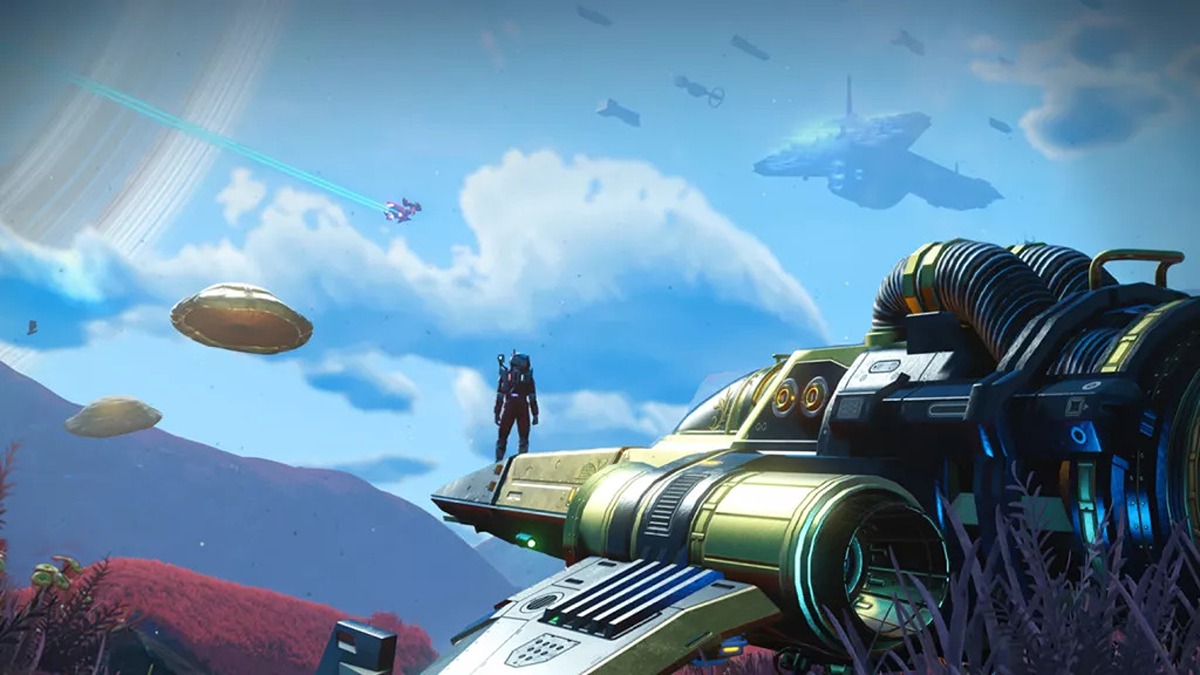
Lost in Space, Found in Games: A Journey Through the Cosmos of Space Adventure
The allure of the unknown has always captivated humanity, and no unknown is as vast and tantalizing as the cosmos. This fascination has fueled countless works of fiction, and within the realm of video games, it has given rise to a beloved genre: the space adventure game. More than just blasting aliens and collecting resources, these games offer players the chance to explore, discover, and ultimately, define their own stories against the backdrop of the infinite.
From pixelated pioneers to breathtakingly realistic simulations, space adventure games have evolved dramatically over the decades. They encompass a wide range of mechanics, from exploration and combat to diplomacy and resource management, often blending these elements to create immersive and engaging experiences. Let’s embark on a journey through the stars, examining some key titles and trends that have shaped this fascinating genre.
The Pioneers: Laying the Groundwork for Interstellar Exploration
The early days of space adventure gaming were limited by technological constraints, but ingenuity shone through. Games like Star Trek (1971), a text-based adventure, laid the foundation for tactical combat and resource management in a galactic setting. Players commanded the Enterprise, navigating star systems, engaging in battles with Klingons, and managing resources to keep their ship operational. While primitive by today’s standards, it captured the essence of space exploration and strategic decision-making.
Another pivotal title was Elite (1984). This revolutionary game offered a sprawling, procedurally generated galaxy where players could trade, fight, and explore in their own customizable spacecraft. Its open-ended gameplay, coupled with its rudimentary but groundbreaking 3D graphics, set a new standard for space adventure. Players could be pirates, traders, bounty hunters, or anything in between, forging their own path in a vast and unforgiving universe.
These early titles established key themes that would resonate throughout the genre’s history: the thrill of discovery, the challenge of survival, and the freedom to chart your own course among the stars.
The Golden Age: Expanding the Universe and Defining Gameplay Mechanics
The late 80s and 90s witnessed a surge in popularity for space adventure games, fueled by advancements in hardware and a growing appetite for complex, narrative-driven experiences. This era saw the emergence of iconic franchises and the refinement of gameplay mechanics.
Wing Commander (1990), from Origin Systems, brought cinematic storytelling and intense dogfighting to the forefront. Players took on the role of a fighter pilot in a futuristic war against the Kilrathi, a feline alien race. The game’s engaging narrative, coupled with its stunning graphics and realistic flight mechanics, made it a critical and commercial success. It also pioneered the use of full-motion video cutscenes, further immersing players in the game’s universe.
Star Control II (1992), often considered a masterpiece, blended exploration, diplomacy, and combat in a truly unique way. Players commanded a starship, exploring a vast galaxy populated by bizarre and memorable alien races. The game’s branching dialogue trees, moral choices, and intricate storyline offered a level of depth rarely seen in video games at the time. Its tactical space combat was also innovative, featuring a wide array of ships with distinct strengths and weaknesses.
Master of Orion II: Battle at Antares (1996), a turn-based strategy game, revolutionized the 4X genre (eXplore, eXpand, eXploit, eXterminate) in a space setting. Players controlled a galactic empire, researching technologies, building fleets, and engaging in diplomacy and warfare with rival civilizations. Its complex gameplay, coupled with its engaging setting, made it a landmark title in the strategy genre.
This period established many of the core mechanics and tropes that define space adventure games today, including open-world exploration, resource management, faction-based politics, and customizable spaceships.
The Modern Era: Immersion, Realism, and Unprecedented Scale
The advent of powerful gaming PCs and consoles allowed developers to create increasingly immersive and ambitious space adventure games. The modern era is characterized by stunning graphics, realistic physics, and unprecedented scale.
EVE Online (2003), from CCP Games, is a massively multiplayer online role-playing game (MMORPG) set in a persistent, player-driven universe. Players can engage in a wide range of activities, from mining and trading to piracy and warfare. The game’s complex economy, intricate political system, and sandbox gameplay have created a vibrant and dynamic community. EVE Online is known for its massive battles, where thousands of players can participate in epic clashes for control of valuable resources and territory.
Mass Effect (2007), from BioWare, blended action RPG gameplay with a compelling narrative and memorable characters. Players took on the role of Commander Shepard, a soldier tasked with saving the galaxy from a looming threat. The game’s branching dialogue trees, moral choices, and character relationships allowed players to shape the story in meaningful ways. Mass Effect’s rich lore and well-developed universe have made it one of the most beloved science fiction franchises of all time.
Dead Space (2008), from Visceral Games, offered a terrifying take on the space adventure genre. Players took on the role of Isaac Clarke, an engineer tasked with investigating a distress call on a mining ship. The game’s claustrophobic environments, grotesque enemies, and intense atmosphere created a truly terrifying experience. Dead Space’s innovative dismemberment system, where players had to strategically target enemy limbs to defeat them, added a unique layer of challenge and tension.
Elite: Dangerous (2014), a spiritual successor to the original Elite, brought the vastness of the Milky Way galaxy to life with stunning detail. Players can explore billions of star systems, engage in trading, combat, and exploration, and even land on planetary surfaces. The game’s realistic flight mechanics, coupled with its stunning visuals, create a truly immersive experience.
No Man’s Sky (2016), from Hello Games, promised an almost infinite universe to explore. While the game’s initial launch was met with criticism due to missing features and technical issues, the developers have consistently updated and improved the game over the years. Today, No Man’s Sky offers a vast and diverse universe to explore, with procedurally generated planets, alien creatures, and resources to discover. Players can build bases, trade with alien races, and engage in multiplayer adventures.
The Future of Space Adventure Games: Reaching for New Horizons
The future of space adventure games is bright, with new technologies and innovative gameplay mechanics paving the way for even more immersive and engaging experiences. Virtual reality (VR) and augmented reality (AR) have the potential to transport players directly into the cockpits of spaceships and onto the surfaces of alien worlds. Procedural generation will continue to play a key role in creating vast and diverse universes to explore.
Games like Star Citizen, an ambitious crowd-funded project, are pushing the boundaries of what’s possible in the genre. Star Citizen aims to create a persistent, living universe where players can engage in a wide range of activities, from trading and combat to exploration and social interaction. While still in development, Star Citizen has generated considerable excitement among fans of the genre.
The space adventure game genre continues to evolve, driven by technological advancements, creative innovation, and the enduring human fascination with the cosmos. Whether you’re a seasoned veteran or a newcomer to the genre, there’s a space adventure game out there waiting to transport you to a galaxy far, far away. So buckle up, engage your warp drive, and prepare for an unforgettable journey among the stars. The universe awaits.

